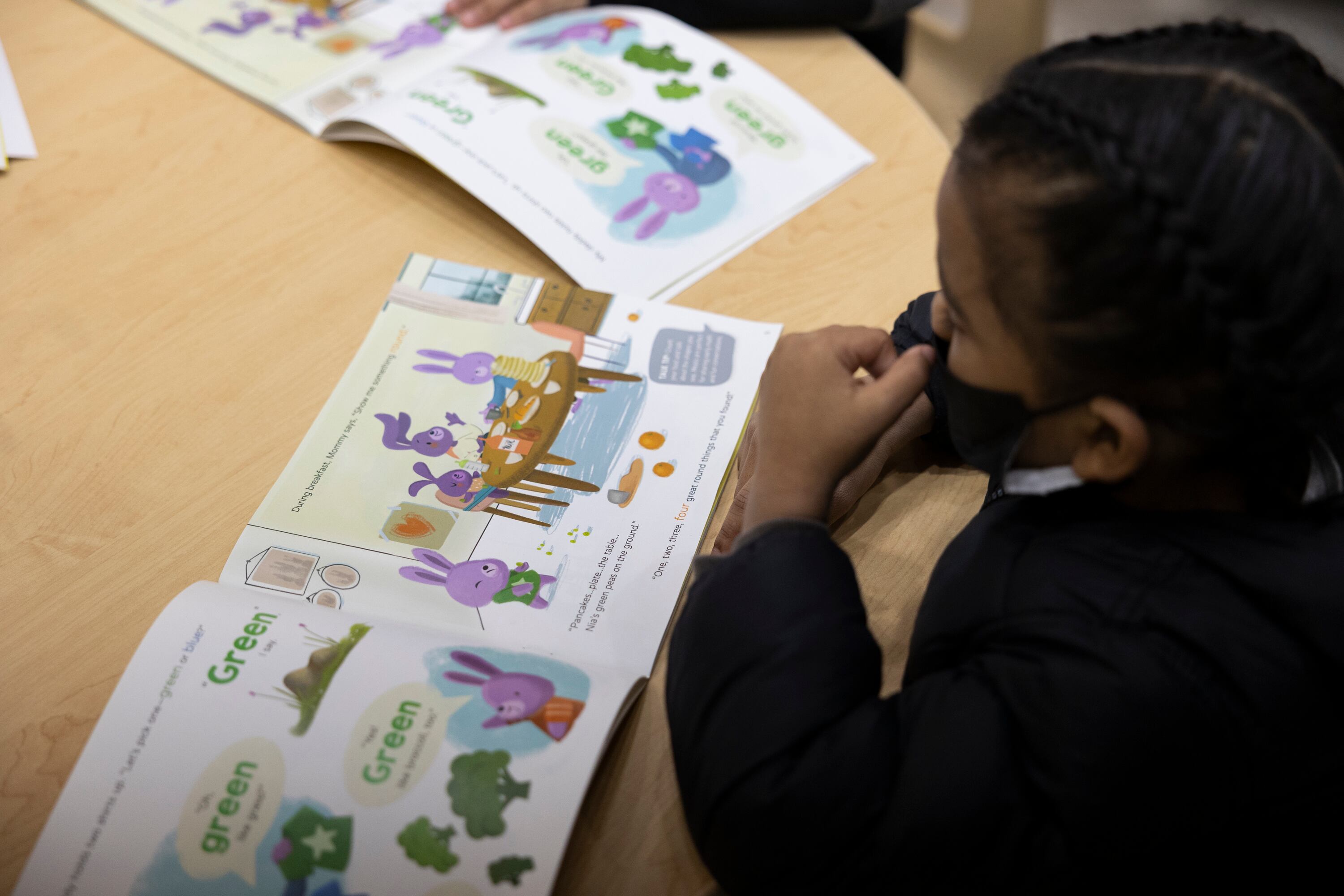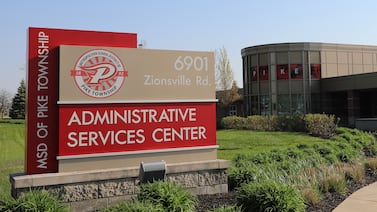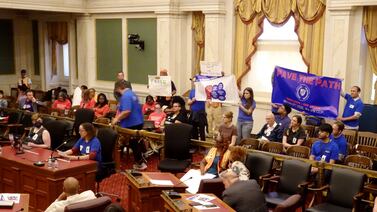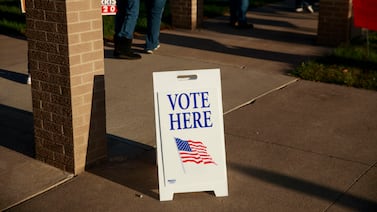It has been more than three years since Michigan Gov. Gretchen Whitmer promised the Detroit school district $94.4 million to settle a 2016 lawsuit alleging that the state denied the city’s schoolchildren a basic education by failing to teach them to read.
Now that money is finally on its way to Detroit.
The funds were included in the $21.5 billion K-12 school aid budget that the Democratic-controlled Legislature passed last month and Whitmer is expected to sign.
Under the settlement terms, negotiated in 2020, the money will go toward increasing reading instruction and support for students in the Detroit Public Schools Community District to address longstanding challenges with literacy. DPSCD officials have already shared proposals to use the money to hire academic interventionists to provide one-on-one support to students struggling with reading.
“Every child in Michigan deserves access to a quality public education regardless of their ZIP code,” Stacey LaRouche, press secretary for Whitmer, said in a statement. “Governor Whitmer has worked to reverse decades of disinvestment in our state’s K-12 schools by securing more funding in every aspect of a child’s education to ensure that they have what they need to be successful.
Here’s a look at how the legal case arose, what the settlement provides, and how the district is preparing to spend the money.
Settlement grew out of ‘right to read’ lawsuit
The federal case settled in 2020 is called Gary B. v. Whitmer, but it dates back to the period when the Detroit school district was under state oversight during Gov. Rick Snyder’s administration, and was originally filed as Gary B. v. Snyder.
The plaintiffs were seven Detroit public school students who alleged that they were denied the opportunity to have a quality education because of poor building conditions, a shortage of textbooks and other learning materials, and poorly qualified teachers.
In the 136-page lawsuit, students describe learning in classes of 50 or more children, inadequate education for English language learners, and rodents and cockroaches in classrooms.
The lawsuit specifically called out Michigan’s deployment of emergency managers to control the city’s public schools between 2009 and 2016. Those managers created conditions so awful, the plaintiffs alleged, that students were denied what they claimed was their constitutional right to a basic reading education.
Reading scores among Detroit students have ranked among the lowest in the nation over the past decade and a half. In fourth- and eighth-grade reading, the Detroit district’s test scores on the National Assessment of Educational Progress have ranked near the bottom statewide and nationwide.
The lawsuit sought to establish a constitutional right to literacy for all students, but the plaintiffs agreed to a settlement in 2020 and dropped their bid to establish that right. The settlement awarded some money to each of the plaintiffs and to the district, and required the governor to propose legislation to provide more money to the district to support literacy efforts. The legislation failed to clear the Republican-led Legislature in 2021 and 2022, but it passed this year under Democratic leadership.
The legislation requires the district to spend the $94.4 million by Sept. 30, 2027.
The settlement money is small but significant
Community members, school officials, and education experts welcomed the settlement, though some argued that the $94.4 million earmarked for Detroit’s literacy initiatives is a small sum in relation to the needs that the lawsuit cited, which spanned everything from textbooks to school buildings. A 2018 audit estimated that the district’s building repair needs alone would grow to $1.2 billion by 2023.
But the district has been able to tap its share of federal COVID relief aid to address building needs and fund a $700 million facility plan. And the settlement money will help the district free up money in its general fund for other priorities, such as retaining contracted nurses, offering one-time staff bonuses to help reduce teacher turnover, and sustaining summer school and after-school programming that had been funded by COVID relief aid.
“More than $94.4 million is needed to get things back where they belong, but it is a monumental victory for a struggle that certainly did not start with this lawsuit,” said Mark Rosenbaum, the lead attorney for the right-to-read lawsuit.
Molly Sweeney, director of organizing for Detroit education advocacy group 482Forward, applauded the Legislature’s approval of the funding, saying that “this is hard-earned money for the community.”
482Forward was among the community groups that advocated for the settlement agreement.
“This is community money, and this should have community input,” Sweeney said. “We should be able to have a say in how it’s spent.”
Two task forces will address Detroit education challenges
In addition to providing money for the district — an initial $2.7 million and the $94.4 million from the legislation — the settlement requires the Michigan Department of Education to provide guidance to schools on the best practices for K-12 literacy education.
The settlement also promised the creation of two task forces to address literacy and educational challenges in Detroit, the Detroit Literacy Equity Task Force and the Detroit Education Policy Committee.
The literacy equity task force is charged with conducting annual evaluations of Detroit literacy and providing state-level policy recommendations to the governor. It will convene a series of town hall meetings over the next year and provide recommendations to the DPSCD school board on how the funds should be used.
The educational policy committee will make recommendations to the governor about Detroit’s education system. Its work will be overseen by the Community Education Commission, a nonprofit created by Mayor Mike Duggan in 2018 to address barriers to accessing quality schools in Detroit.
The district has early plans for how to use the money
Anticipating lawmakers’ approval of the settlement funding, DPSCD Superintendent Nikolai Vitti has already outlined some early strategies on how the district plans to spend the money.
“We are awaiting the recommendations from the Literacy Task Force on how to use the funds,” Vitti said in an email. “We will certainly consider their recommendations but are not required to abide by them.”
Among the district’s top priorities: hiring more academic interventionists, increasing literacy support for high school students, and expanding teacher training on how to help students who are several grades below reading level.
The settlement requires that the district spend its money on programs that follow evidence-based literacy strategies. But it allows for spending on a range of initiatives that could support student learning, such as reducing class sizes for K-3 students, upgrading school facilities, and providing students with more reading materials.
Under Vitti, DPSCD has prioritized staff training on Orton-Gillingham, a multisensory teaching method typically used for students with dyslexia or other reading challenges, as well as hiring academic interventionists to work one-on-one or in small groups with students struggling to read and with English language learners.
Even after the settlement money is spent, Vitti said, the district would continue to find different funding sources to fund academic interventionists, a position he considers “a centerpiece of our literacy support.”
Literacy task force has begun working
The settlement requires 15 members to be assigned to the Detroit Literacy Equity Task Force:
- Two DPSCD representatives selected by the superintendent and approved by the board
- Two teachers selected by the Detroit Federation of Teachers
- One paraprofessional selected by the Detroit Federation of Paraprofessionals
- Three DPSCD students
- Three DPSCD parents or caregivers
- Two Detroit community members
- Two literacy experts selected by the task force’s DFT, DFP and DPSCD members
Lakia Wilson-Lumpkins, president of the Detroit Federation of Teachers and co-chair of the task force, says the group began meeting privately as early as 2022 for exploratory discussions about what to do with the money.
“In our initial meetings, we discussed possibilities in terms of supplemental resources, technologies, adaptive equipment, books,” Wilson-Lumpkins said. “Ninety-four million dollars seems like a lot of money, but it is not. We definitely want to improve facilities, improve materials, improve training, and once you do all those things for 50,000 students I think $94 million will be well spent.”
The task force is required to host six public meetings before April 30, 2024, to get community input on how the money should be spent. Then by June 30, the group will need to submit recommendations to the DPSCD school board.
The recommendations “are not mandatory, but nobody expects a tug of war on this,” said Rosenbaum. “The school board and Superintendent Vitti have been responsive to the community.”
In approving the settlement, Michigan Senate lawmakers included a clause that requires the district to explain how it intends to use community input to guide its spending.
DPSCD is required to host at least one community meeting to discuss its spending plan, Vitti said, and district officials will introduce the plan to the school board’s academic and finance committees before it comes up for a full board vote.
But he added that the district would like to move fast to allocate the money once it’s released to DPSCD.
“The School Board would likely approve use of the literacy lawsuit funding by the first (2023-24) budget amendment, which takes place after the fall count period” in October, Vitti said.
“We want to start using the funds as soon as possible, so we are eager to consider the recommendations from the Task Force.”
Ethan Bakuli is a reporter for Chalkbeat Detroit covering Detroit Public Schools Community District. Contact Ethan at ebakuli@chalkbeat.org.








